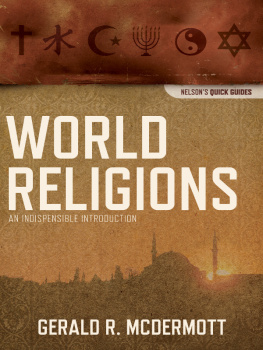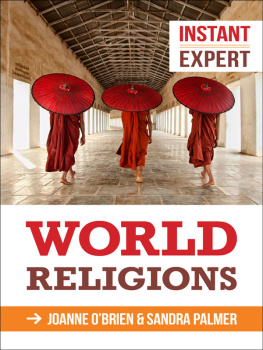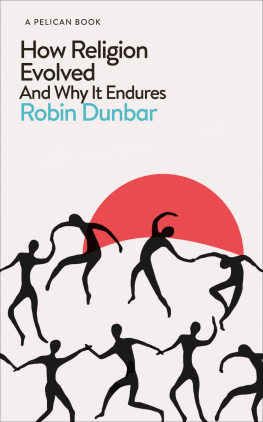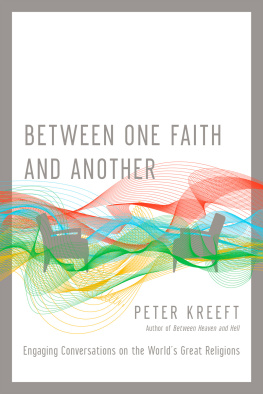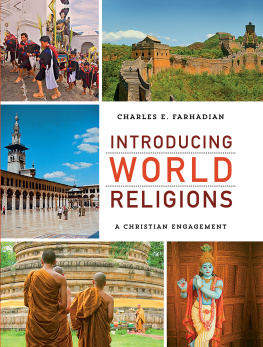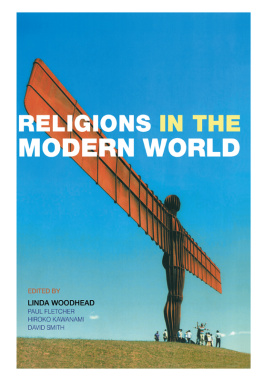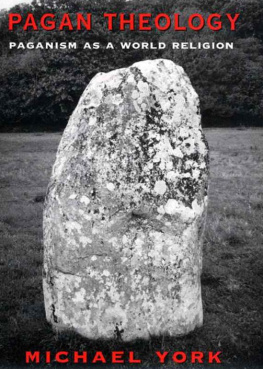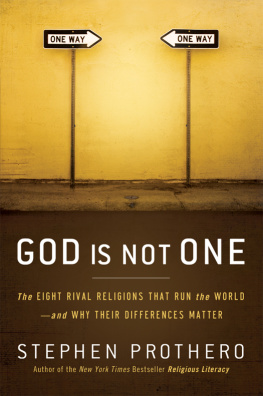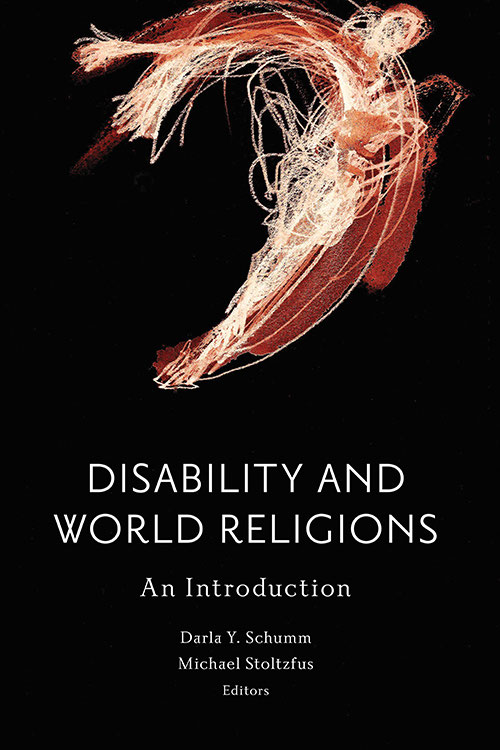SERIES EDITORS
Sarah J. Melcher
Xavier University (Cincinnati, Ohio)
Amos Yong
Fuller Theological Seminary (Pasadena, California)
Disability and World Religions
An Introduction
Darla Y. Schumm and Michael Stoltzfus
Editors
Baylor University Press
2016 by Baylor University Press
Waco, Texas 76798
All Rights Reserved. No part of this publication may be reproduced, stored in a retrieval system, or transmitted, in any form or by any means, electronic, mechanical, photocopying, recording, or otherwise, without the prior permission in writing of Baylor University Press.
Jacket design by Adam Bohannon
Cover image: This Breathing World by Rachel Gadsden, www.rachelgadsden.com, London, UK
9781602587526 (ePub)
This ebook was converted from the original source file. Readers who encounter any issues with formatting, text, linking, or readability are encouraged to notify the publisher at BUP_Production@baylor.edu. Some font characters may not display on all ereaders.
To inquire about permission to use selections from this text, please contact Baylor University Press, One Bear Place, #97363, Waco, Texas 76798.
Library of Congress Cataloging-in-Publication Data
Names: Schumm, Darla Y. (Darla Yvonne), editor. | Stoltzfus, Michael, 1965
editor.
Title: Disability and world religions : an introduction / Darla Y. Schumm and
Michael Stoltzfus, Editors.
Description: Waco, Texas : Baylor University Press, 2016. | Series: Studies
in religion, theology, and disability | Includes bibliographical
references and index.
Identifiers: LCCN 2016003891| ISBN 9781481305211 (hardback : alk. paper) |
ISBN 9781481305228 (ebook-mobi/kindle) | ISBN 9781481305235 (web pdf)
Subjects: LCSH: DisabilitiesReligious aspects. | Religions.
Classification: LCC BL65.B63 D573 2016 | DDC 200.87dc23
LC record available at http://lccn.loc.gov/2016003891
Studies in Religion, Theology, and Disability brings newly established and emerging scholars together to explore issues at the intersection of religion, theology, and disability. The series editors encourage theoretical engagement with secular disability studies while supporting the reexamination of established religious doctrine and practice. The series fosters research that takes account of the voices of people with disabilities and the voices of their family and friends.
The volumes in the series address issues and concerns of the global religious studies/theological studies academy. Authors come from a variety of religious traditions with diverse perspectives to reflect on the intersection of the study of religion/theology and the human experience of disability. This series is intentional about seeking out and publishing books that engage with disability in dialogue with Jewish, Christian, Buddhist, or other religious and philosophical perspectives.
Themes explored include religious life, ethics, doctrine, proclamation, liturgical practices, physical space, spirituality, or the interpretation of sacred texts through the lens of disability. Authors in the series are aware of conversation in the field of disability studies and bring that discussion to bear methodologically and theoretically in their analyses at the intersection of religion and disability.
Studies in Religion, Theology, and Disability reflects the following developments in the field: First, the emergence of disability studies as an interdisciplinary endeavor that has impacted theological studies, broadly defined. More and more scholars are deploying disability perspectives in their work, and this applies also to those working in the theological academy. Second, there is a growing need for critical reflection on disability in world religions. While books from a Christian standpoint have dominated the discussion at the interface of religion and disability so far, Jewish, Muslim, Buddhist, and Hindu scholars, among those from other religious traditions, have begun to resource their own religious traditions to rethink disability in the twenty-first century. Third, passage of the Americans with Disabilities Act in the United States has raised the consciousness of the general public about the importance of critical reflection on disability in religious communities. General and intelligent lay readers are looking for scholarly discussions of religion and disability as these bring together and address two of the most important existential aspects of human lives. Fourth, the work of activists in the disability rights movement has mandated fresh critical reflection by religious practitioners and theologians. Persons with disabilities remain the most disaffected group from religious organizations. Fifth, government representatives in several countries have prioritized the greater social inclusion of persons with disabilities. Disability policy often proceeds based on core cultural and worldview assumptions that are religiously informed. Work at the interface of religion and disability thus could have much broader purchasethat is, in social, economic, political, and legal domains.
Under the general topic of thoughtful reflection on the religious understanding of disability, Studies in Religion, Theology, and Disability includes shorter, crisply argued volumes that articulate a bold vision within a field; longer scholarly monographs, more fully developed and meticulously documented, with the same goal of engaging wider conversations; textbooks that provide a state of the discussion at this intersection and chart constructive ways forward; and select edited volumes that achieve one or more of the preceding goals.
Contents
Amy Donahue
Stephen E. Harris
Benjamin Lukey
Andrew Lambert
Julia Watts Belser
Mary Jo Iozzio
Thomas Reynolds
Vardit Rispler-Chaim
Lavonna Lovern
Editing a text is one of the most challenging yet satisfying forms of scholarly collaboration. Many people contributed their time and expertise to bring this book to fruition. We are deeply grateful to the authors of the chapters for their scholarly insights, their careful research, and, most of all, their patience with our deadline and revision requests. This book would not have been possible without the generosity of spirit, time, and talent of Julia Watts Belser, Amy Donahue, Stephen Harris, Mary Jo Iozzio, Andrew Lambert, Lavonna Lovern, Benjamin Lukey, Thomas Reynolds, and Vardit Rispler-Chaim.
We thank Amos Yong and Sarah J. Melcher, the editors of the Studies in Religion, Theology, and Disability series at Baylor University Press, for showing confidence in our editing abilities by inviting us to engage this project and for their guidance and support throughout the process. We are equally grateful to Baylor University Press for demonstrating a strong commitment to exploring the important intersections between religion, theology, and disability through this series. We offer our thanks to the Baylor University Press editorial staff for deftly guiding us through the manuscript preparation and publication maze.
Most of what we do would not be possible without the love and support of our families. We thank our parents, Clare and Katie Ann Schumm and Glenn and Geneva Stoltzfus, for their constant care, encouragement, and nurture. Our spouses and childrenRebecca Green, William Stoltzfus, Jonathan Harris, and Henry Schummprovide daily inspiration and encouragement and receive our deep gratitude for sustaining us from the beginning to the end of the project.


